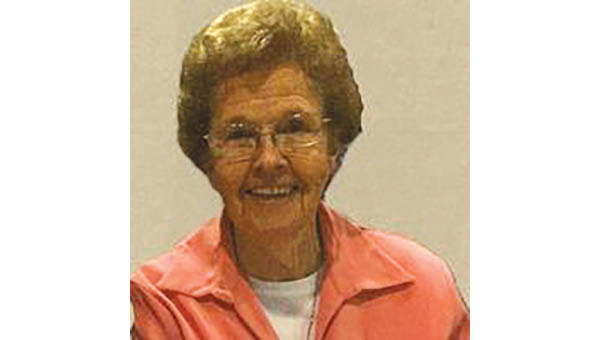Health information technology bill aims to improve interoperability of systems nationwide
Published 9:16 am Friday, February 12, 2016

People visit various healthcare providers throughout their lifetimes, and records must be transferred.
Unfortunately, the transition from paper to electronic filing has led to the use of a variety of health information technology (HIT) platforms nationwide, and incompatibility issues when attempting to share records between healthcare providers or healthcare systems.
In response to this and other HIT issues, U.S. Senator Lamar Alexander (R-Tenn.) and ranking Senate Health Committee member Patty Murray (D-Wash.) introduced the “Improving Health Information Technology Act,” which passed the committee unanimously by a vote of 22-0 on Feb. 9. The proposed bill (S.2511) came about after six hearings and was open for input from healthcare professionals for nine days before its passage in the committee.
“The areas that our bill, that Senator Murray and I worked on with many of you, focuses on cutting down on the time doctors are spending on paperwork rather than caring for patients; it helps providers understand more about the health IT products they buy, to reduce information blocking, which really means there is some obstacle getting in the way of a person’s health information getting shared between providers, and that could be because one provider refuses to share the information, or charges a big fee, or because simply they don’t talk to each other — the systems don’t,” Alexander said to the Senate Health Committee Tuesday.
He then explained the importance of interoperability between systems for the benefit of patients and physicians.
The bill seeks to maintain patient privacy and record security while creating a network of healthcare networks that may share information with appropriate physicians as well as with the patients themselves.
Patients at Mountain States Health Alliance already have access to their records through a Patient Portal, but Executive Vice President and Chief Medical Officer Dr. Morris Seligman, MD, FACP, said they have experienced issues receiving health records when patients visit from other healthcare systems. This is not unique to MSHA, and Seligman said the lack of interoperability is an issue throughout the nation for hospitals, pharmacies, home healthcare providers and primary physicians.
“It shouldn’t matter whether a patient shows up in their own town or somewhere else in the country; they should be able to get access to their records,” said Seligman.
He said that while electronic health records serve the important role of providing better, quicker access to records, some are difficult for patients to access and cannot be transferred easily to another provider.
In an emergency situation, and even with routine procedures, the lack of medication and test records can cost physicians and patients time and money. That’s why Seligman believes this bill is a step in the right direction, though he said many steps are sure to follow.
“There’s a huge incentive to get this right because if they have to do more testing and could have avoided it, it saves government and other payers for paying for more tests,” he said. “That is a huge problem in the industry. If you have a critical situation and can’t get to the information because it’s somewhere else, and you need to know, you’re going to repeat the test, and that unfortunately adds cost.”
Additionally, interoperability between systems could provide better access for doctors to quickly see which medications a person is taking in order to avoid prescribing a medication which interferes with another.
“If the entire nation is wired in, it won’t matter where you go, and that is the broader vision of this. No matter where you’re at seeking care in this country, people should be able to tap into the system,” said Seligman, adding they can tailor care appropriately with access to existing information.
For some, increased access to information raises privacy concerns.
While referencing recent data breaches across the country, Seligman said a sufficient security system must be in place, but that these concerns will always be on people’s minds.
“I think the benefits outweigh the risks,” said Seligman, explaining how immediate access to recent tests and medical records can save people critical time and potentially more radiation or scanning.
He said the speed of access to information for multiple physicians on one case at one time are benefits that are not possible with paper documentation in a fast-paced healthcare environment.
The bill also seeks to streamline data entry, establish standards for filing and create physician and HIT registries, as well as to adopt standards and goals for electronic platforms in the future. Changes to the bill are still possible, as it must pass a House and Senate majority vote and receive the President’s signature to become law.
“Our goal is to make our country’s electronic health record system something that helps patients rather than something that doctors and hospitals dread so much that patients are not helped,” said Alexander. “We have worked for months – with input from those who actually use the system – to help improve health information technology and I’m glad to see this legislation move forward as part of a successful first meeting on our committee’s bipartisan biomedical innovation agenda.”





